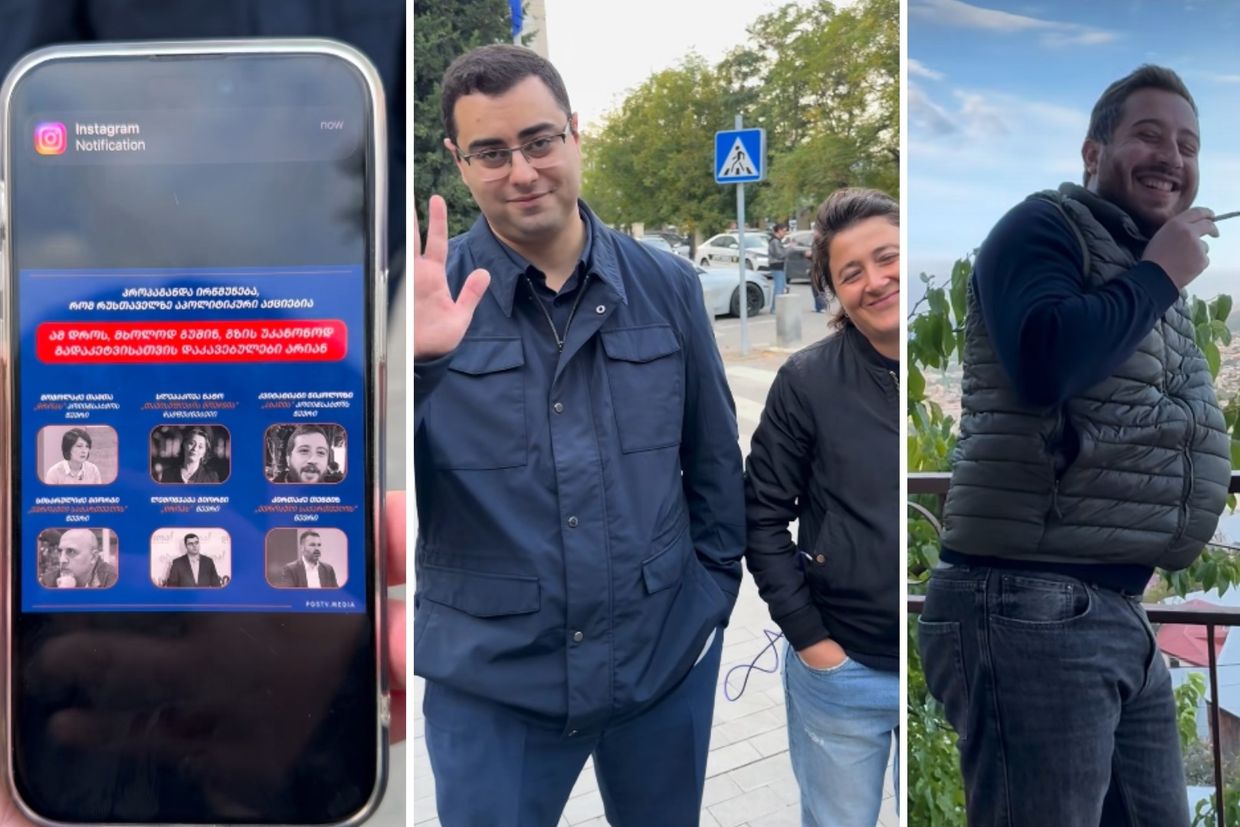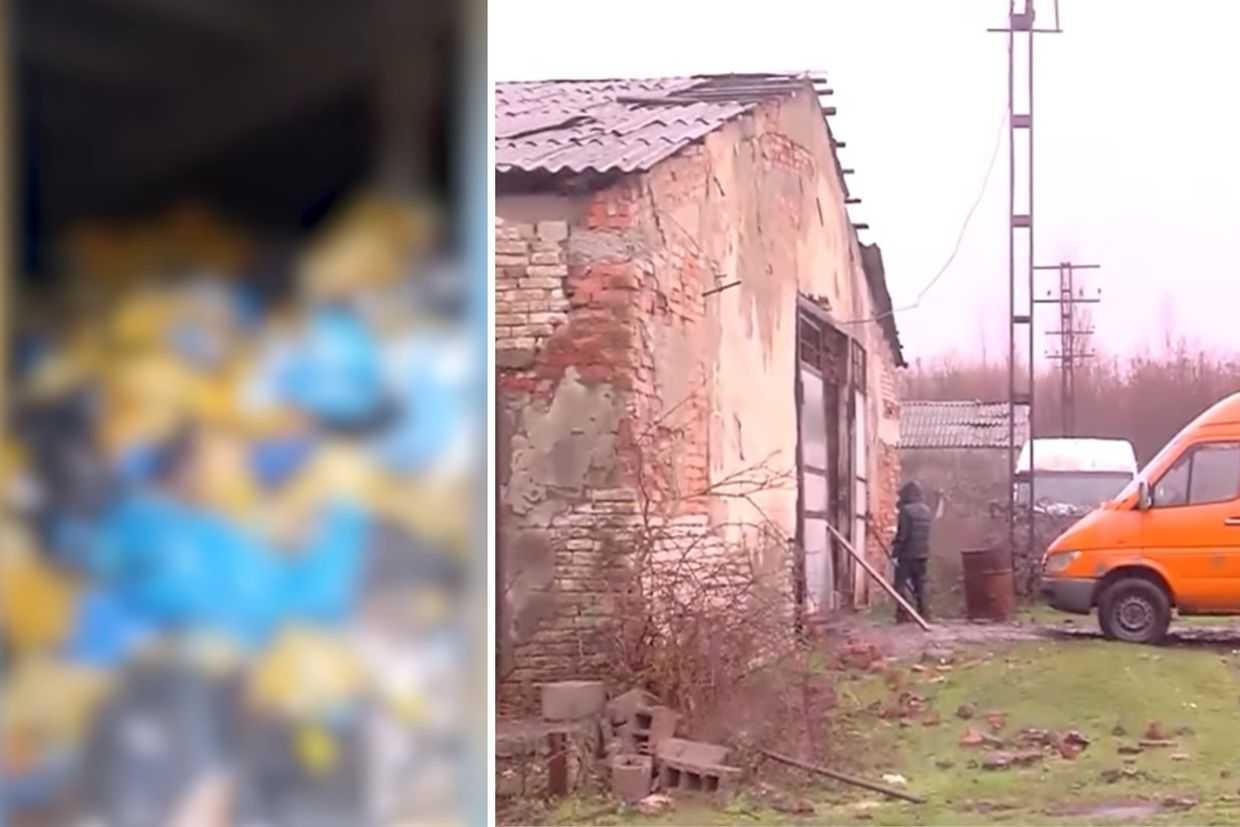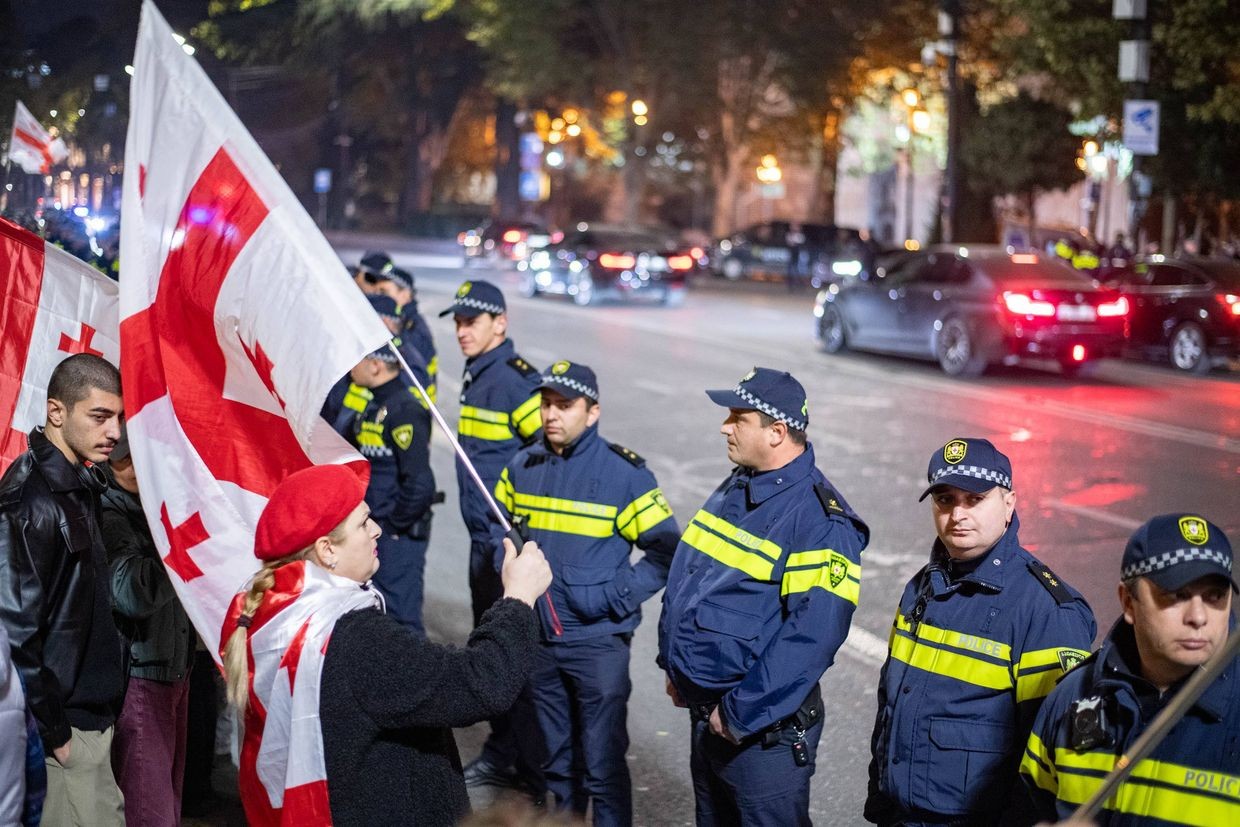
As Tbilisi’s daily anti-government protests nears the one-year mark, demonstrators can no longer exercise what was once a hallmark of their rallies — blocking the road in front of parliament — due to police intervention. Instead, they look for new ways to express their anger.
From police violence to ₾5,000 ($1,800) fines, the Georgian state has employed various means to suppress the ongoing wave of street protests that began in November 2024, after the ruling Georgian Dream party halted the country’s EU membership bid.
When the rallies and road blockages continued, despite shrinking in size, the Georgian Dream-controlled parliament decided in mid-October to cancel the fines altogether and introduce imprisonments for first offences. The move was followed by mass arrests of demonstrators, sending dozens of people to prison for days.
Yet groups of protesters — sometimes holding umbrellas to conceal their identities — kept briefly blocking the capital’s Rustaveli Avenue next to the legislative body each evening. They remained on the road until the police on site intervened, then quickly moved back onto the sidewalk.
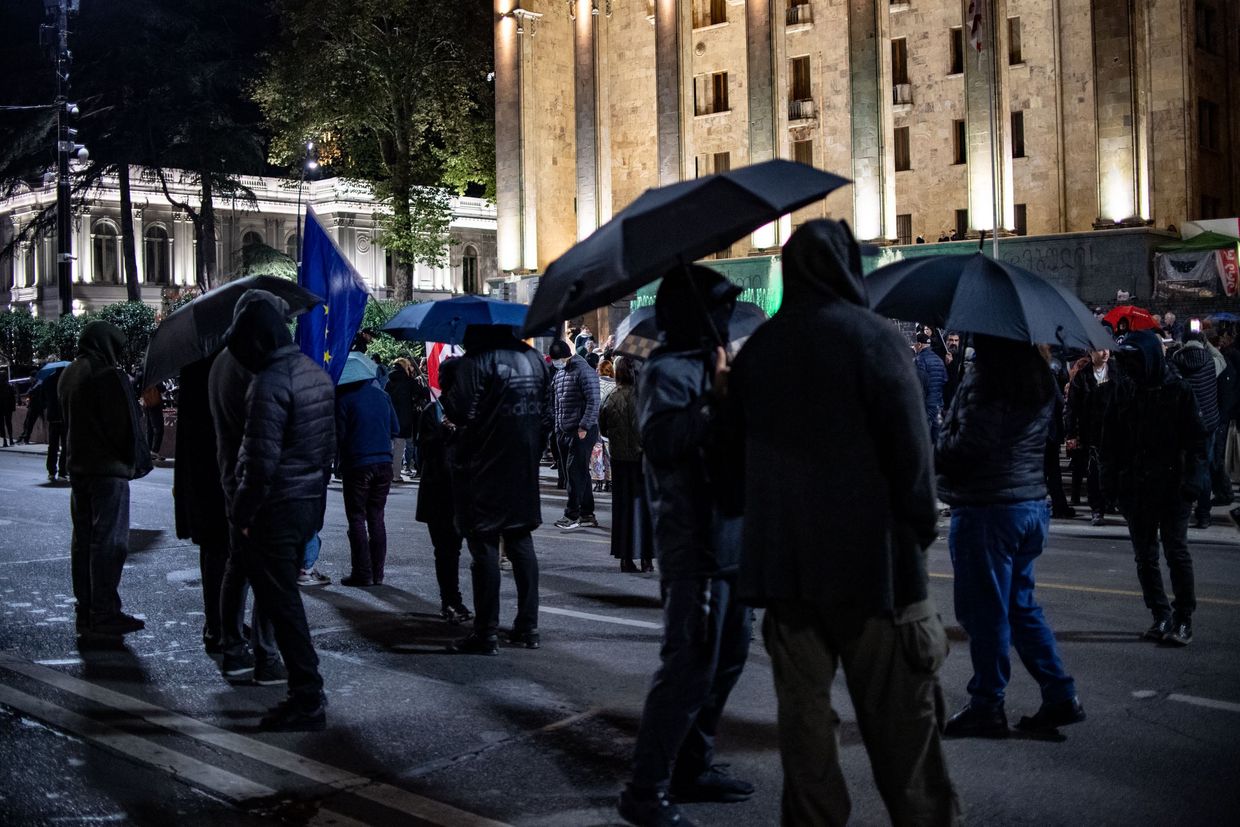
It was only on 6 November that the police grew more forceful, with lines of officers forming cordons along both sides of the road, herding the protesters onto the sidewalks and not even allowing them a brief passage across the street.
‘They thought we would stop, that we wouldn’t be able to come up with anything else’, Nino Gogua, a participant in the daily protests, told OC Media.
The protests did not stop, however, though the demonstrators had to change their tactics. Each evening, they still gather on the sidewalk in front of parliament, but then, instead of walking onto the road, they hold marches along the smaller streets surrounding the parliament.
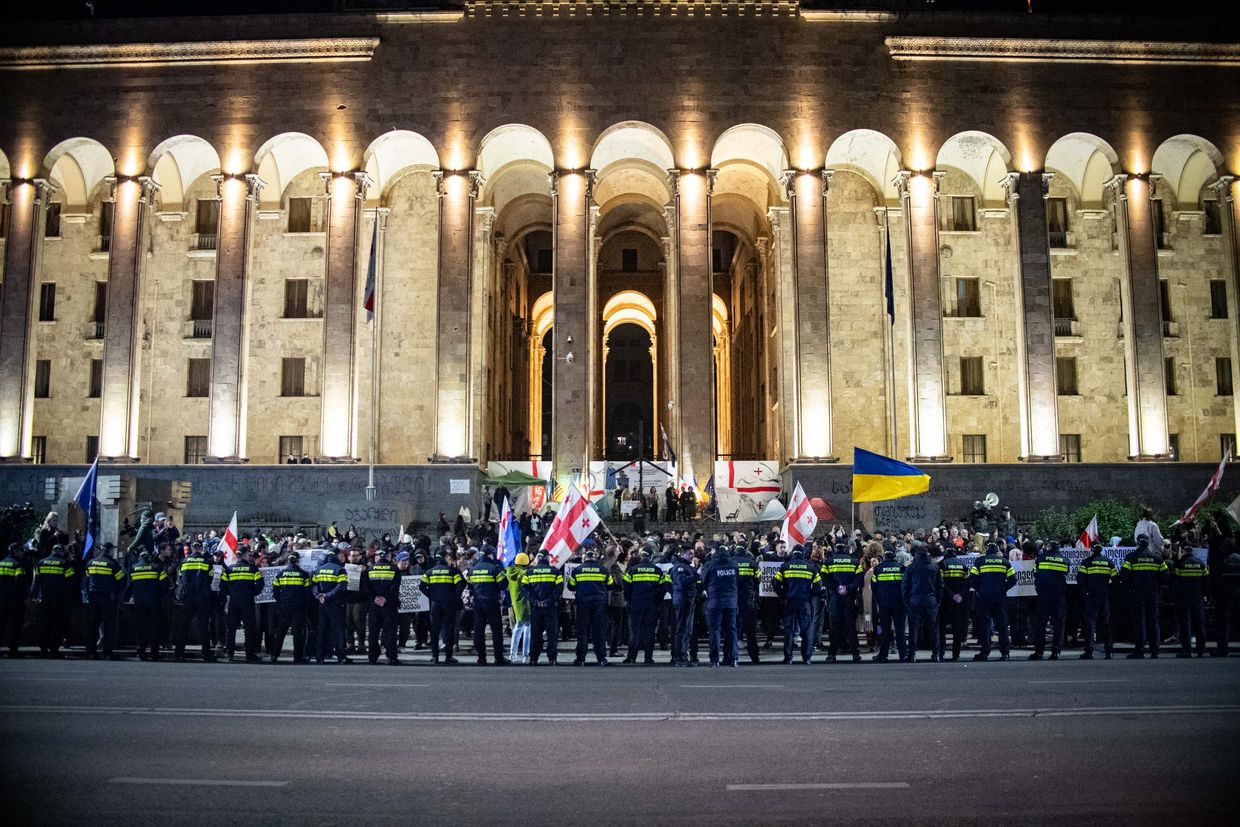
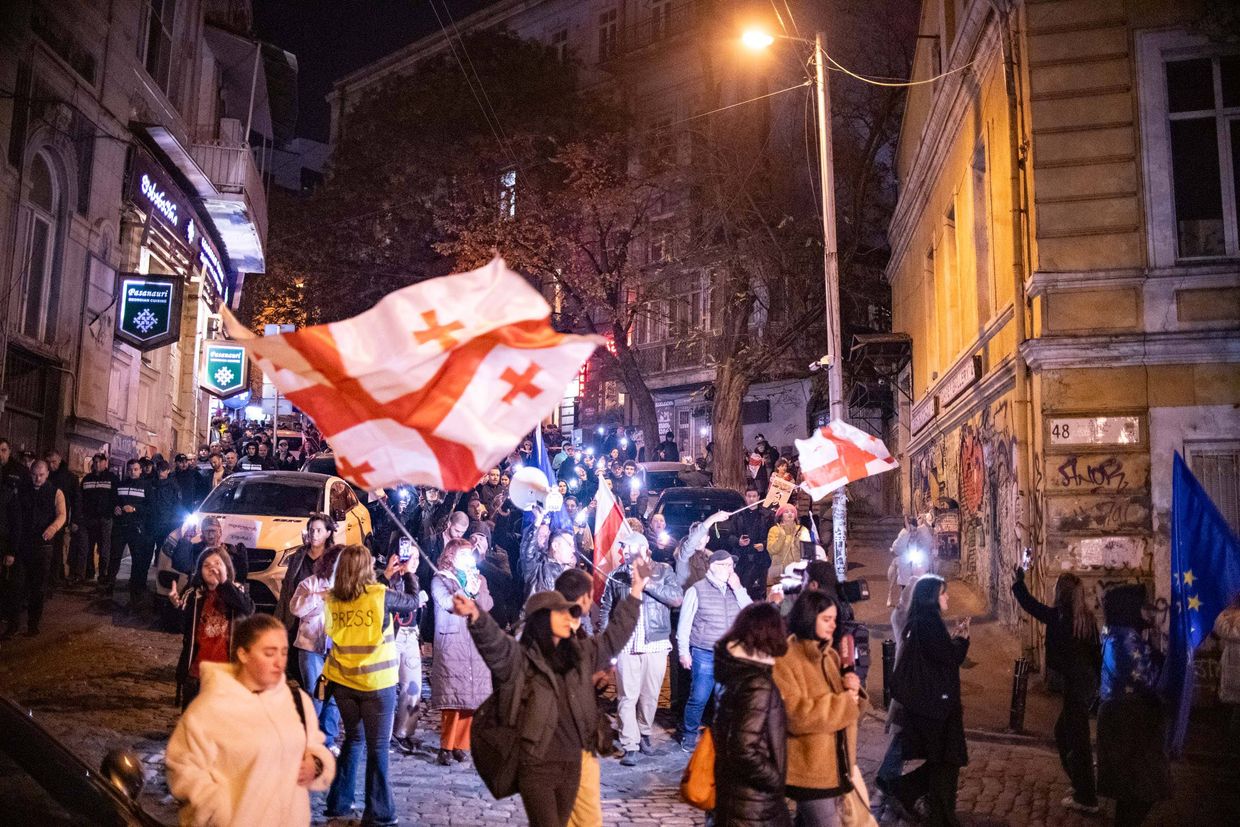
Their routes vary, often taking them past nearby state institutions, including the Government Administration and the Supreme Court.
‘They made another mistake and took the wrong step. It didn’t work out for them — we’ll always come up with something’, Gogua said.
In her view, the form the protests have taken in recent days is ‘much better’.
‘Instead of just standing there [at the parliament] and blocking the road for 15 or 30 minutes, it’s better that we move through the city, where people are driving, where there are eating places with people sitting inside — we make more noise, it’s more dynamic’, she said, adding that ‘since we stopped blocking the road, no one has been arrested, and we’re not under stress anymore’.
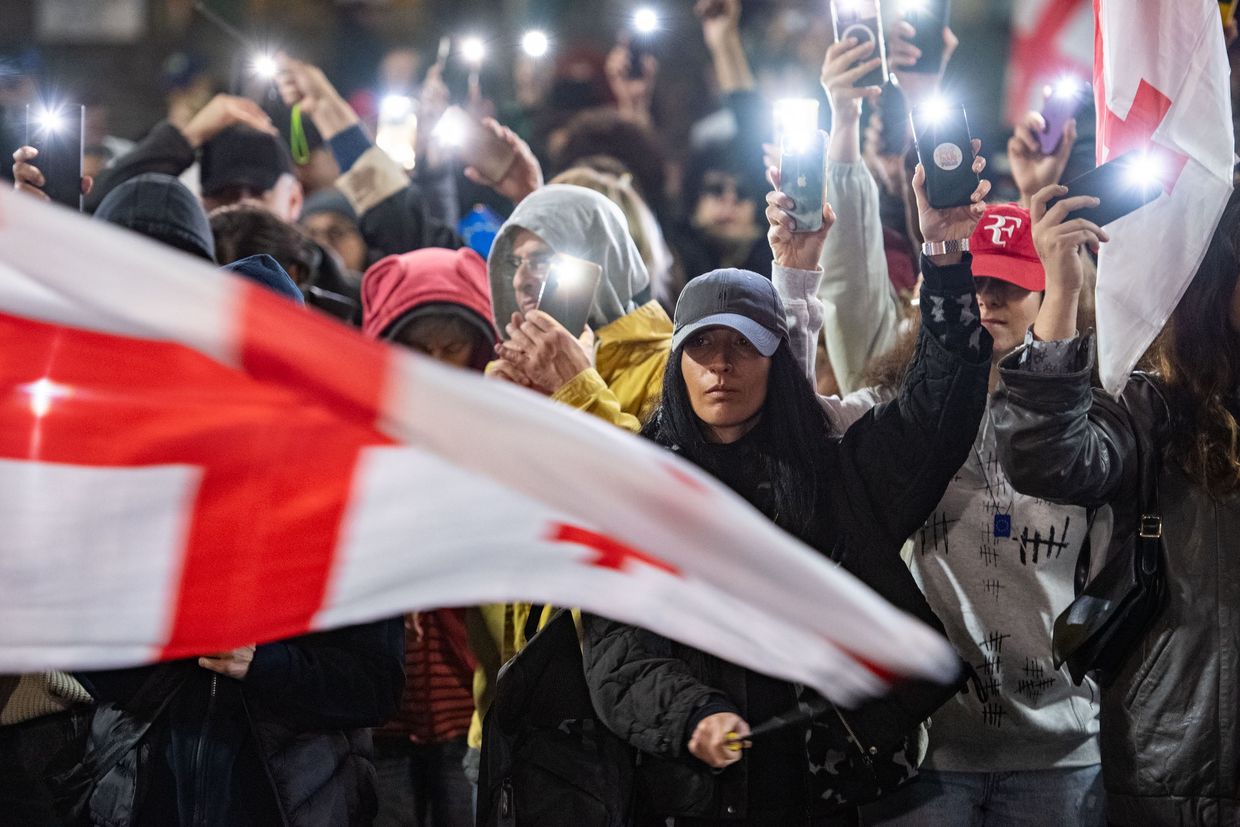
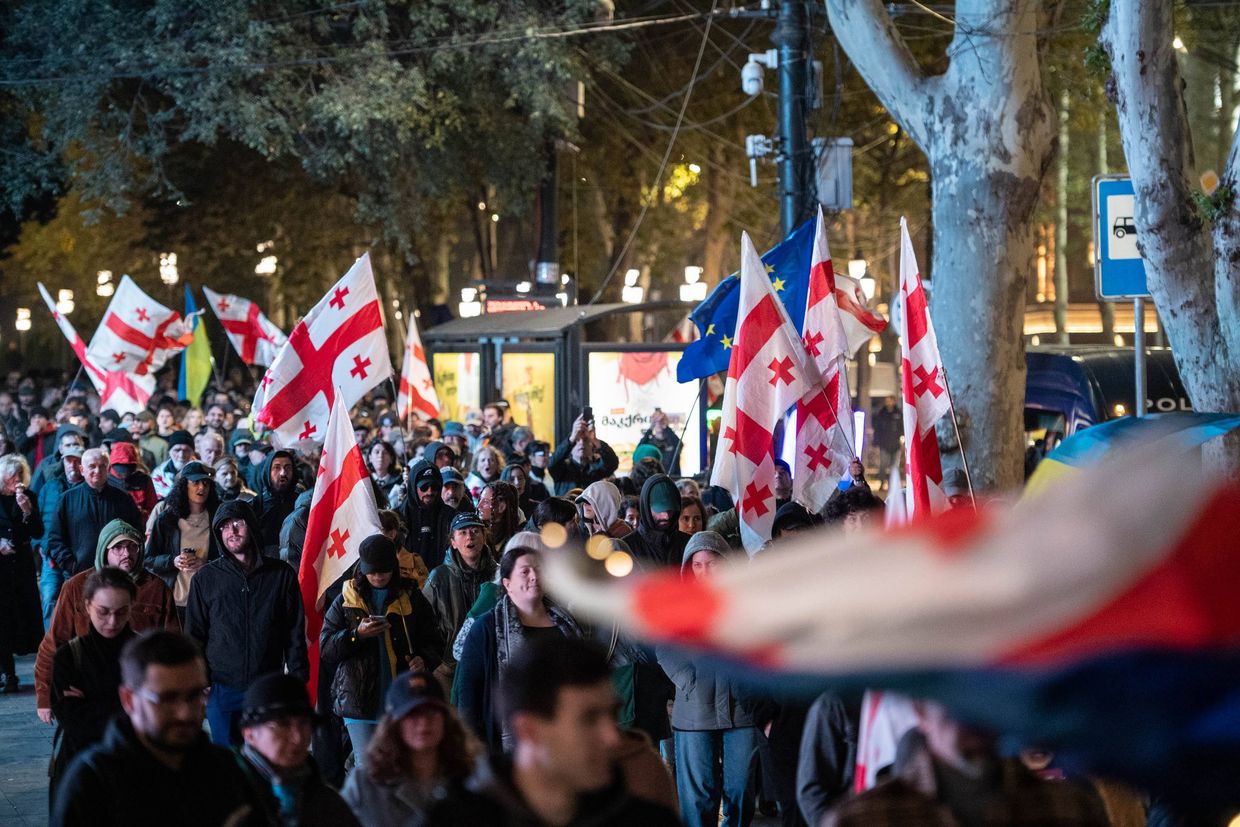
The change in protest tactics does not mean that the police have fully stepped back: they remain in significant numbers near parliament, follow the marches, and prevent protesters from blocking other streets.
However, for some, occupying the roadway has never been, and still is not, the primary purpose.
‘The important thing is that people are still coming out’, Lasha Katsia, a protester and brother of formerly detained demonstrator Nika Katsia, told OC Media.
He noted that the protest has changed its form multiple times and ‘will change many more times’, as the movement manages to ‘adapt’ to the obstacles imposed by the authorities.
‘I don’t belittle those who ended up in prison for blocking the road. To me, it’s exemplary that those people made sacrifices. But I still think the important thing is that people are out here protesting’, he added.
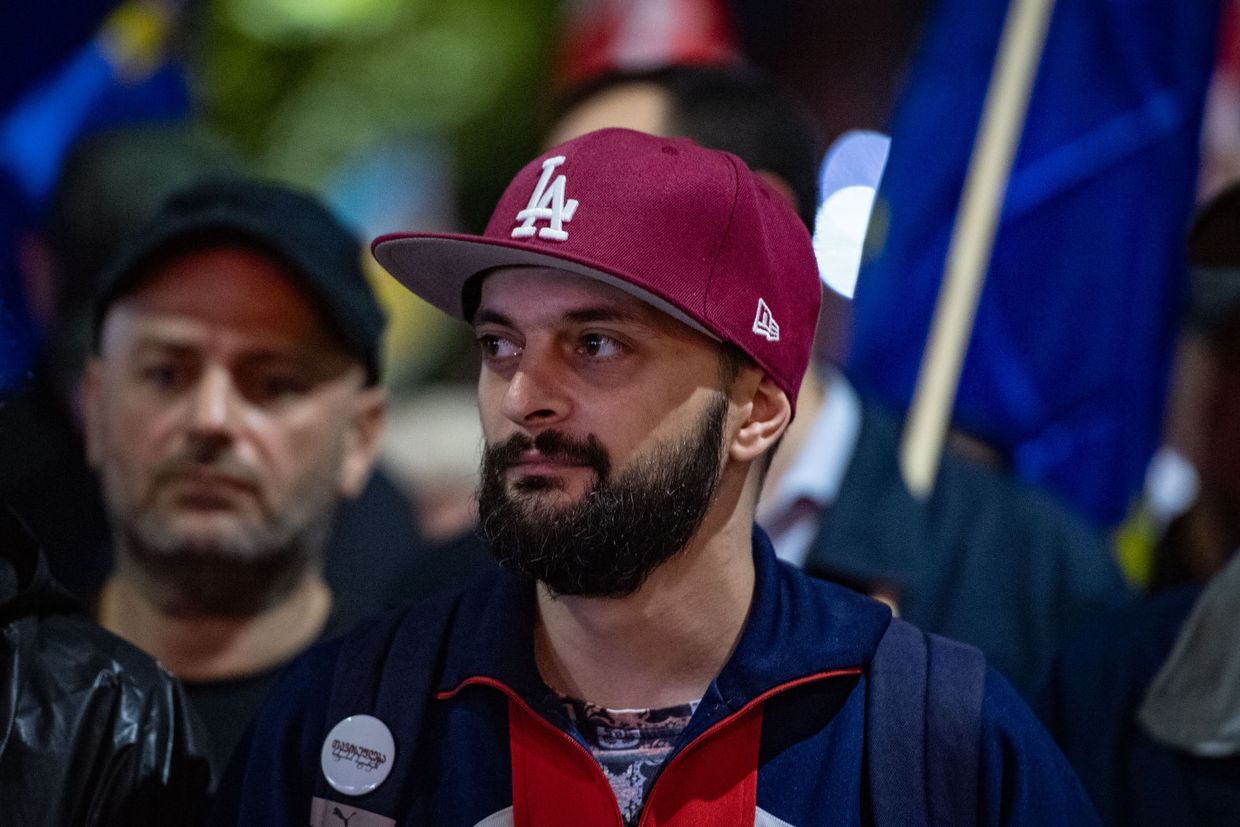
‘The laws have, in practice, failed to work’
The latest restrictive legislations targeting protests were adopted following the failed ‘peaceful revolution’ on 4 October.
On that day, tens of thousands took to the streets of central Tbilisi in an anti-government protest, spurred by calls from some opposition figures. A small portion of participants later stormed the Presidential Palace, leading to clashes with police and dozens of arrests.
Since that day, the ruling party has stepped up pressure on daily protests, continued to link its participants to violence and foreign powers, and threatened ‘systemic steps’ to further curb their actions. The threats were soon followed by stricter laws targeting certain protest activities, including blocking roads and covering faces.
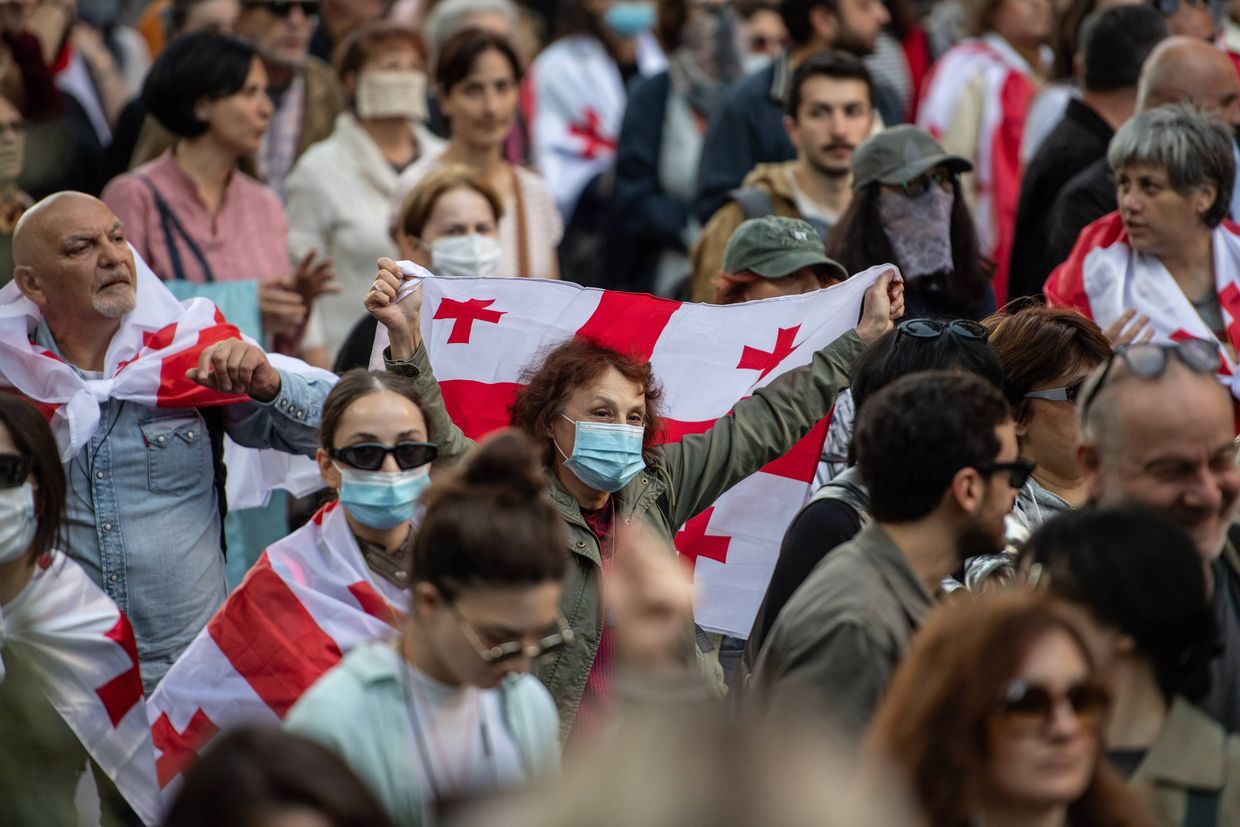
The laws quickly came into effect, with police arresting more than 100 people both at protest sites and in their homes or while walking in public, many of whom were held in custody for days. At least one person currently faces up to a year in prison, as after being released, he blocked the street again — an act considered a criminal offence under the new legislation.
Lawyer and protest participant Nika Simonishvili sees the fact that road blockages persisted despite old and new waves of restrictions as proof that the laws adopted by the ruling party ‘have, in practice, failed to work’.
‘Neither ₾5,000 ($1,800) fines, nor imprisonment, nor intimidation, nor the presence of police on Rustaveli Avenue could stop the protests’, he told Palitra News.
‘[Now] they seem intent on creating a human barrier around the demonstrations on Rustaveli’, he added, referring to the police cordons near parliament.
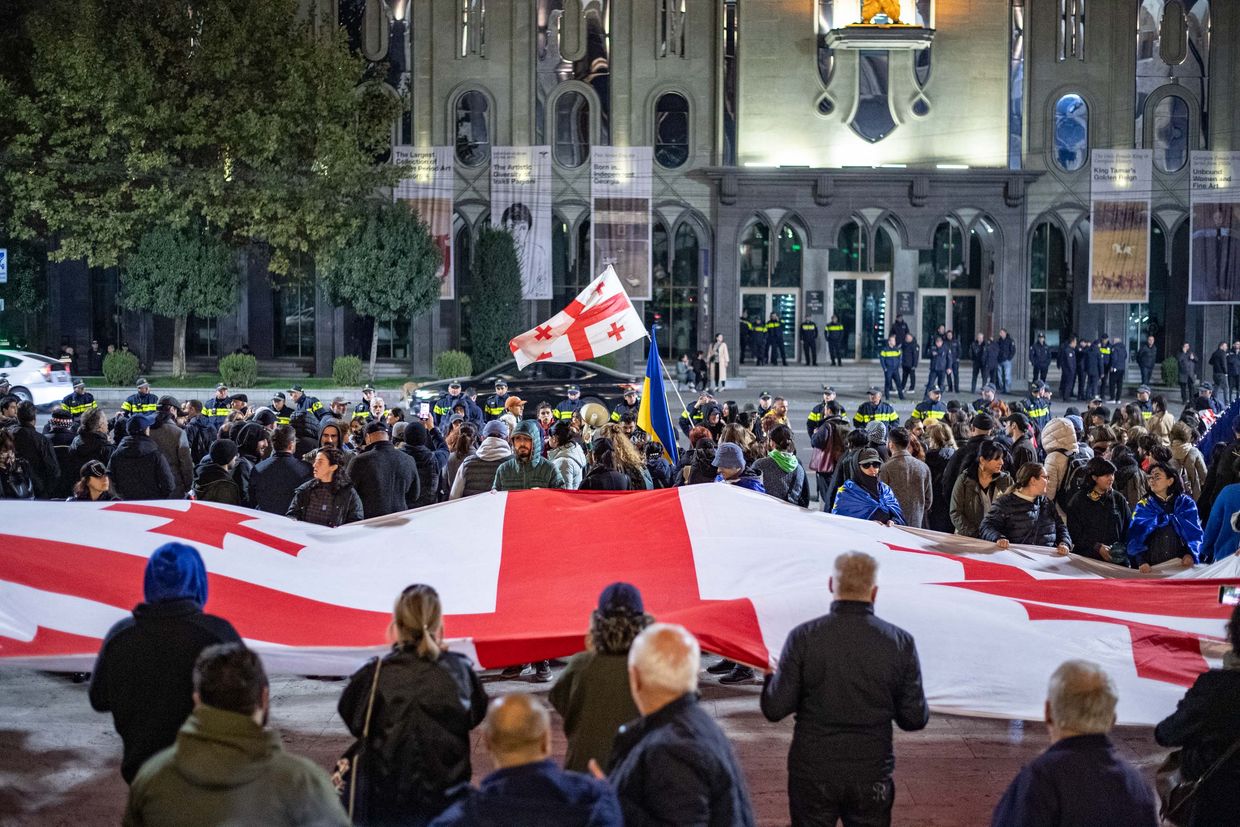
Protesters do not expect the ruling party’s restrictions to stop here. In recent days, police have increasingly obstructed their marches through smaller streets near the main avenue and, at times, even interrupted their movement on the sidewalks, regardless of their numbers.
However, the demonstrators themselves do not intend to stop either.
‘I think they [the state] will come up with something new, and we, as we usually do, will adapt to it and respond in a new way’, Gogua concluded.
The same sentiment is shared by Katsia, who sees the goal of the protests as ‘saving Georgia’ and ‘changing an illegitimate government’.
‘As long as there is even one person protesting this regime and what it has brought us, the protest will remain alive’, he added.
